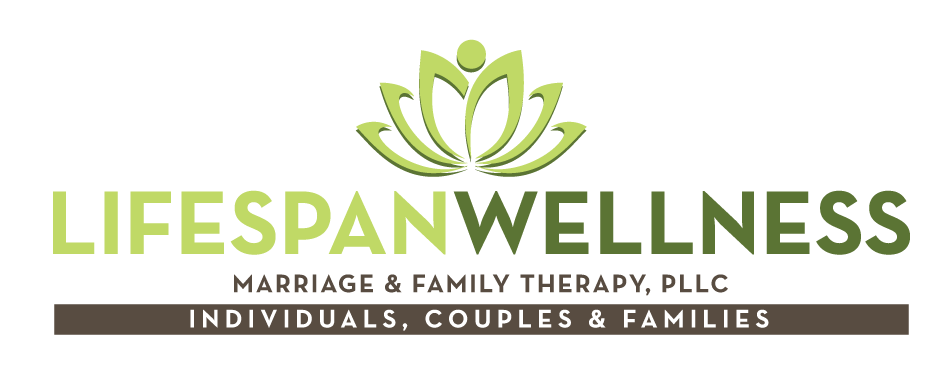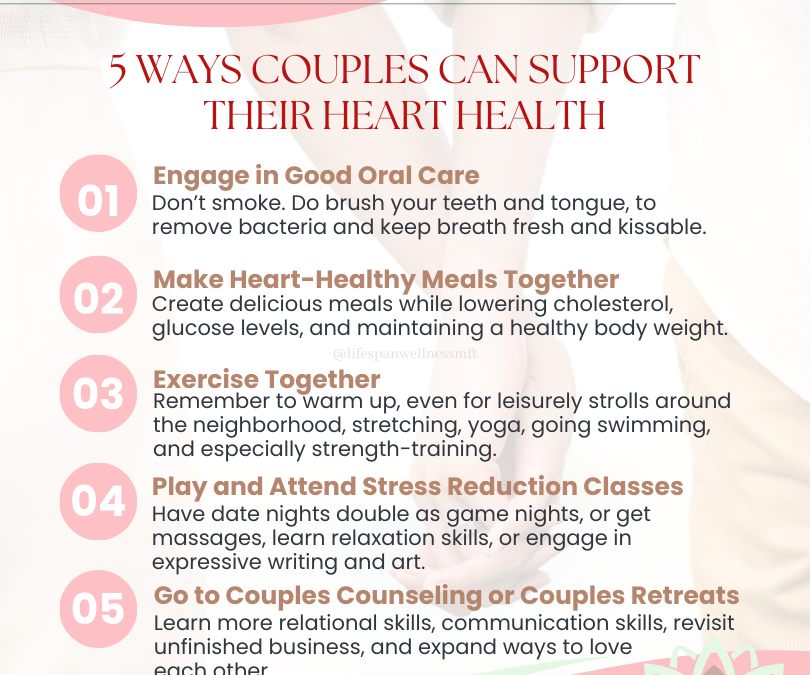Research supports what many of us already know: that the quality of our relationships impacts the quality of our health, and the quality of our health impacts our relationships.
More specifically, as stated by Sin (2016), decades of research have documented:
+ The role of negative psychological factors—including depression, anxiety, and hostility—in the development and progression of cardiovascular disease (CVD),
+ While positive psychological characteristics have been linked with better health and longevity, including lower levels of cardiovascular risk factors and decreased incidence of cardiovascular disease, and that:
+ People who have existing cardiovascular disease have shown that greater positive well-being is associated with reduced risk of secondary cardiovascular events and mortality.
Positive psychological characteristics and emotional vitality are often correlated with healthy lifestyle behaviors that include including not smoking, greater physical activity, better dietary patterns, lower incidence of sleep disturbances, reducing stress and related inflammation in the body, and having supportive social relationships (Sin, 2016).
Kubansky et al. (2019) also discussed that cardiovascular disease can be managed with protective biological, behavioral, and psychosocial factors, and refer to the American Heart Association (AHA) seven components for cardiovascular health promotion: four health behaviors (healthy diet, physical activity, abstinence from tobacco, and normal body mass index [BMI]) and three health factors (favorable blood pressure, total cholesterol, and glucose).
In the United States, February is the month that we celebrate Valentine’s Day, the day for lovers, and the month that we dedicate to raising awareness about heart health and cardiovascular diseases, prioritizing heart-healthy lifestyles, learning about heart disease prevention, and supporting those affected by cardiovascular conditions. Since the quality of our relationships impacts the quality of our health, and the quality of our health impacts our relationships, it makes logical and emotional sense that our most significant and closest relationships will have the greatest impact on, and be impacted by, our health and health practices. Couples who value the quality of their daily experiences also cultivate health habits that support their own and each other’s care and wellbeing, and relational habits that nurture positive interpersonal connection and social support.
What are Five Health Habits That Every Couple Can Do To Support Healthy Hearts and Healthy Relationships?
+ Engage in Good Oral Care: This includes not smoking, but it also emphasizes the importance of flossing once a day and brushing your teeth and tongue twice a day (once in the morning and once before bedtime) to promote removal of bacteria that cause gum problems and tooth decay, and to keep breath fresh for yourself and your closest encounters. Important tips: Never share your toothbrush, replace it every three months, and inform your dentists about any heart issues that you may have or are at risk of developing.
+ Make Heart-Healthy Meals Together: Choose organic foods wherever possible, and a variety of fruits and vegetables, whole grains, low-fat dairy products, skinless poultry, and avoid sodium, fats, excess of red meat, packaged or pre-made sweets, and sugar-sweetened beverages. Take the pressure off from having two cooks in the kitchen by trying a recipe that neither of you have tried before and see if you can put your own creative (but healthy!) interpretations into whatever you are making. Have fun creating something delicious while lowering cholesterol, glucose levels, and maintaining a healthy body weight.
+ Exercise Together: This could be anything from taking a leisurely stroll around the neighborhood, stretching, yoga, going swimming, strength-training, vigorous cleaning or repair work, or yes, having sex! Remember to use a 5-to-10-minute warmup to get your bodies moving and prevent injury, and a lot longer for foreplay!
+ Take Time to Play and Attend Stress Reduction Classes Together: Have date nights double as opportunities to go bowling, play billiards, throw axes, play minigolf as a couple or with friends, or explore workshops on meditation, relaxation skills, biofeedback, psychoeducation workshops about stress management facilitated by health professionals, get massages, or engage in expressive writing or art classes.
+ Go to Couples Counseling or Couples Retreats: Every partnership has opportunities to learn more relational skills, including healthy and supportive communication skills, revisit unfinished business that weighs a heart down or breaks it now and again, and expand ways to love each other and keep their love, and beating hearts, going strong.
Which heart-healthy habits would you benefit from starting today?
#Couples
#HeartMonth
#HeartHealth
#CardiovascularHealth
#HealthyHeart
#PreventHeartDisease
References:
Kubzansky, Laura D., et al. “Positive Psychological Well-Being and Cardiovascular Disease.” Journal of the American College of Cardiology, vol. 72, no. 12, Sept. 2018, pp. 1382–1396, https://doi.org/10.1016/j.jacc.2018.07.042.
Maryland Department of Health and Mental Hygiene Family Health Administration Office of Oral Health. “Pages – Oral Health Home.” Maryland.gov Enterprise Agency Template, health.maryland.gov/phpa/oralhealth/. Accessed 29 Feb. 2024.
Sin, N. L. (2016). The Protective Role of Positive Well-Being in Cardiovascular Disease: Review of Current Evidence, Mechanisms, and Clinical Implications. Current Cardiology Reports, 18(11). https://doi.org/10.1007/s11886-016-0792-z
@ Copyright 2024 Lifespan Wellness Marriage and Family Therapy, PLLC.
The preceding article was solely written by the author named above for informational purposes, and any opinions, analyses, or speculations expressed are not to be interpreted as medical advice. Please consult with your medical provider(s) regarding any health issues you may be experiencing.
None of the materials on this website, including articles, are to be reproduced, altered, or otherwise used by third parties in any way without the expressed written consent of the author.
Questions or comments can be directed to Maria Constantinou at lifespanwellnessmft@gmail.com.

